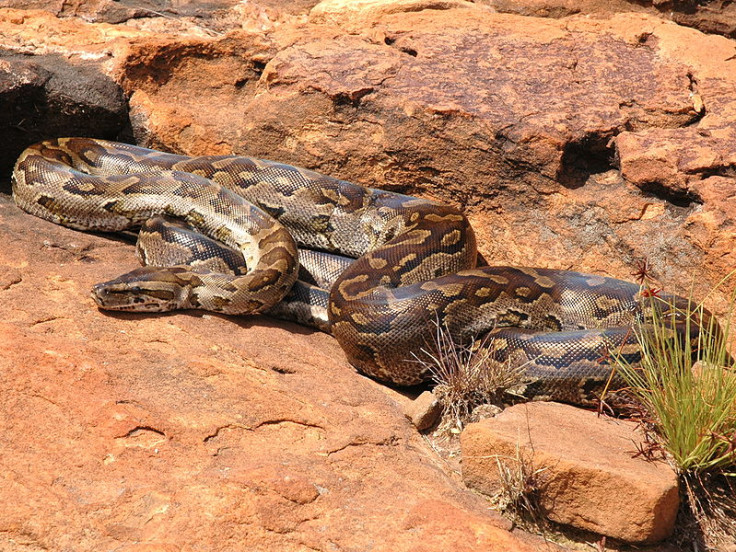Canada: Owner of African rock python that killed two boys to be charged over deaths
Python owner faces two charges of criminal negligence for causing the death of two Canadian boys

The owner of a python is facing two charges of criminal negligence for causing the death of two Canadian boys.
Noah Barthe and his brother Connor were found dead on 5 August 2013 after the python managed to escape from its pen in an exotic pet shop, owned by Jean-Claude Savoie in New Brunswick.
Savoie's lawyer, Leslie Matchim, said Savoie was arrested on Thursday in Montreal, but has since been released from custody. Savoie is due to appear in court on 27 April to face charges.
The 45kg (100lb) python escaped through an air vent and made its way through a ventilation pipe, according to police.
The snake's weight caused the pipe to fall into the living room of an apartment above the Reptile Ocean exotic pet store, where the two young boys were staying for a sleepover with Savoie's son.
Autopsy results showed that the children died from asphyxiation.
Owning African rock pythons as pets has been banned in New Brunswick since 1992, with ownership permits only given to accredited zoos.
An online petition to shut down Reptile Ocean was set up by concerned locals before the fatal accident.
"The way his animals are treated is not right , And I will fight against them till something is done, Sick animals should not be around healthy ones. They should not even be up for adoption. I am disgusted by that place and will no longer step a feet (sic) in there ever again," according to a statement posted by the petition's administrator at thepetitionsite.com.
The Reptile Ocean's Facebook page posted: "Sharing is caring," but one visitor commented, "You know what ISNT caring… have your snakes escape and then kill some children."
The python that killed the boys is Africa's largest snake, and can grow to around 6.1m (20ft).
Although they are not venomous, they are known for their fierce temperament. "They come out of the egg striking," said Kenneth Krysko, senior herpetologist at the Florida Museum of Natural History.
"I personally don't see why people need to have these things as pets – they're not good pets and look at what ends up happening," Krysko told National Geographic. "I was shocked to hear about this."
© Copyright IBTimes 2024. All rights reserved.







